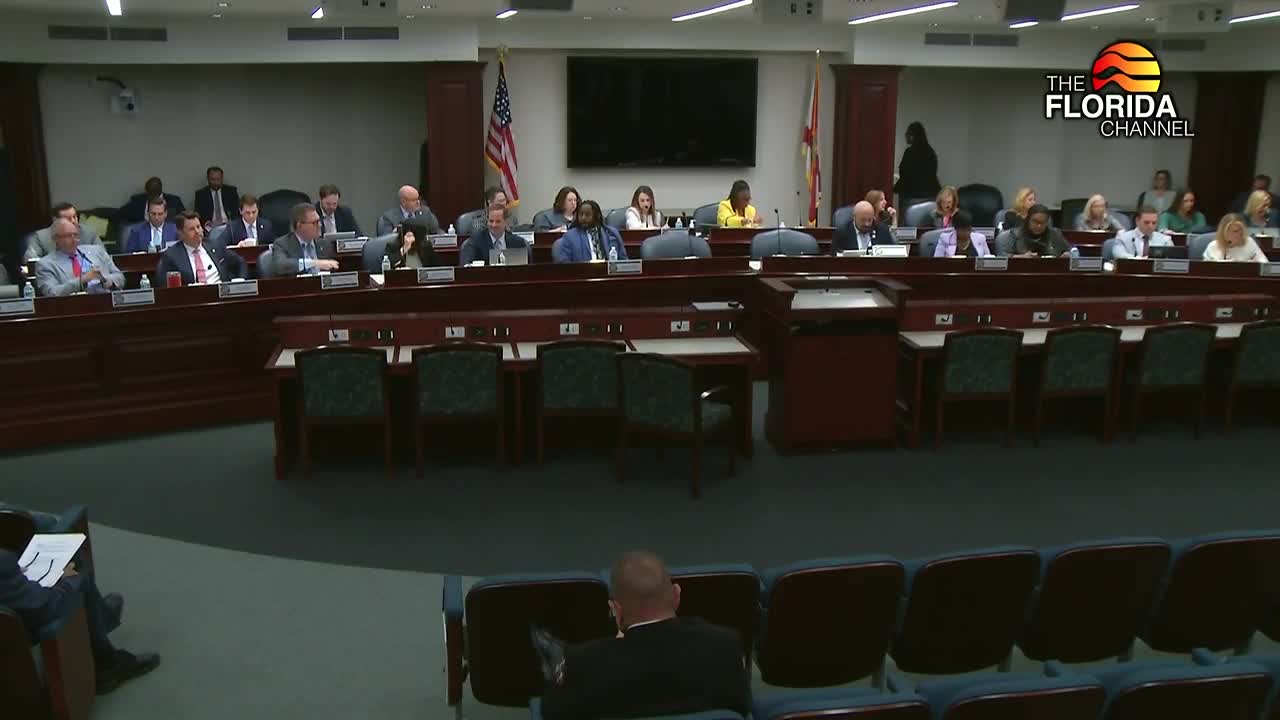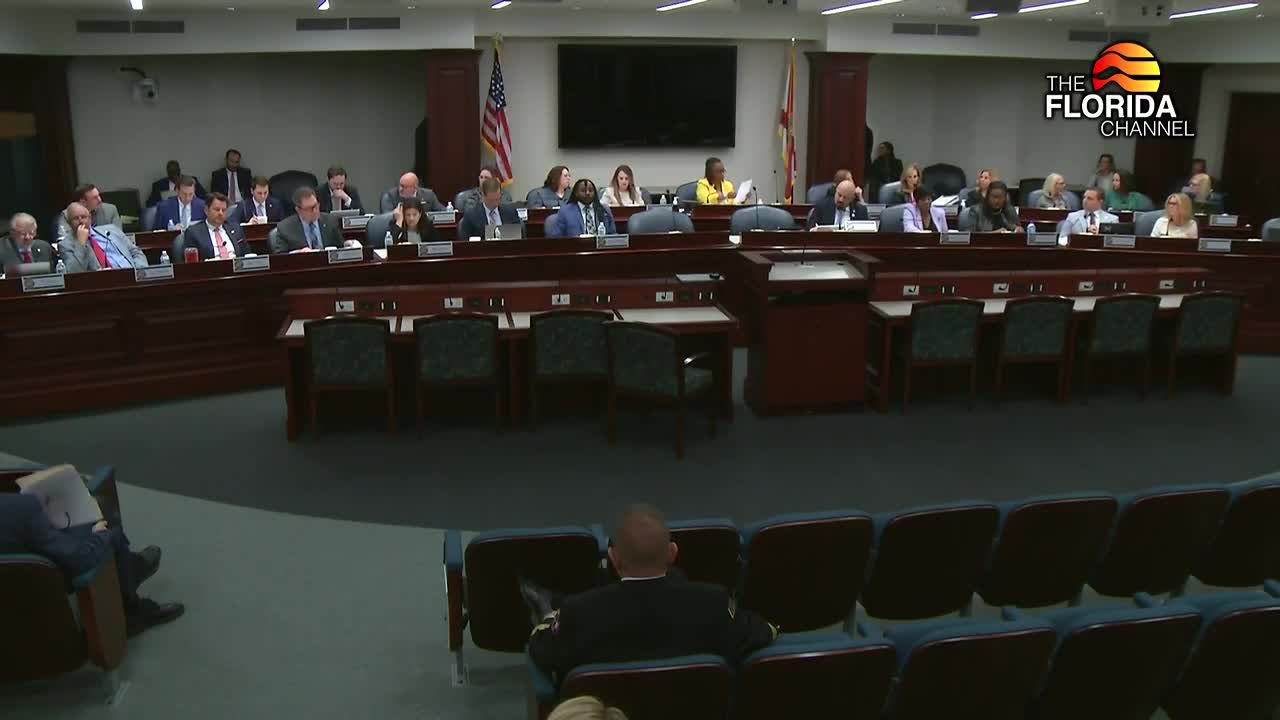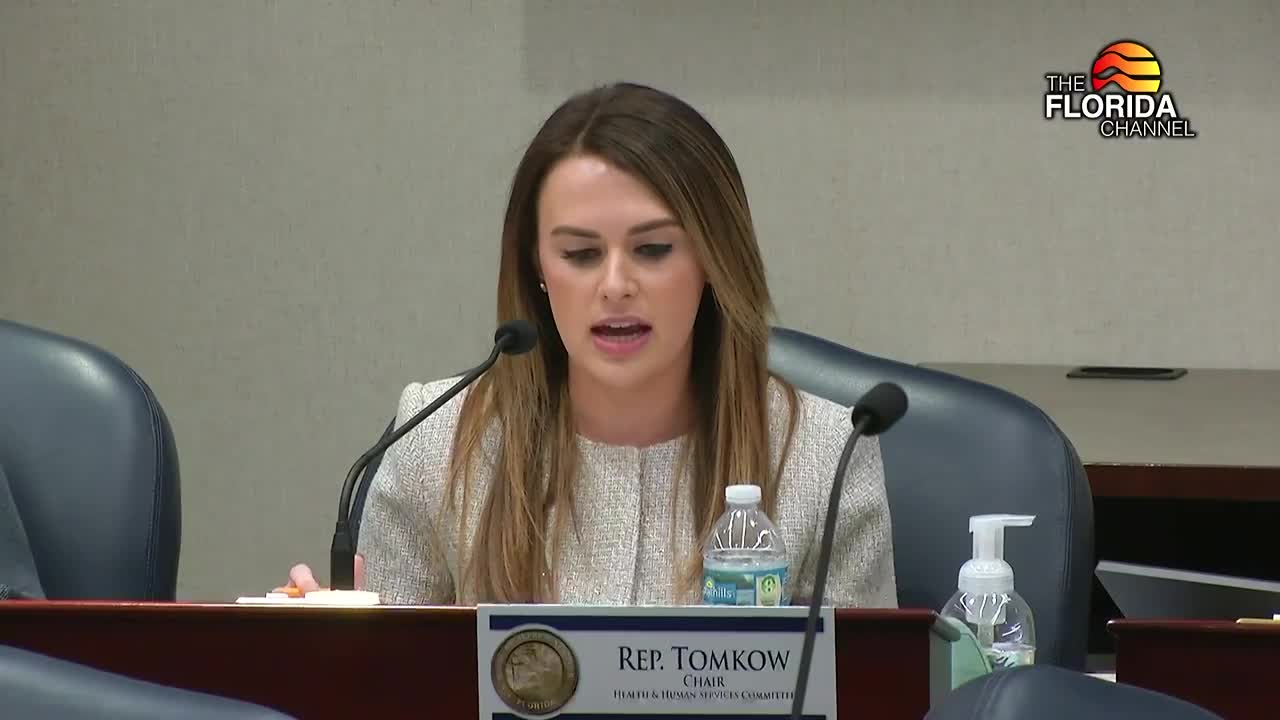Article not found
This article is no longer available. But don't worry—we've gathered other articles that discuss the same topic.

Committee reports favorably on multiple public‑health bills, including pediatric readiness, infant safety devices and opioid measures

Committee backs Sunshine Genetics Act to expand newborn genomic screening at Florida State

